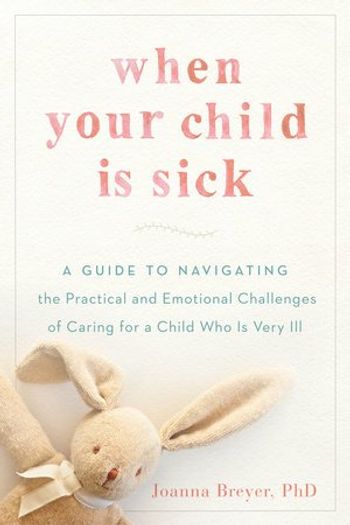
One is reminded as one reads this book of Emerson’s well-known quote, “Common sense is genius dressed in work clothes.”

One is reminded as one reads this book of Emerson’s well-known quote, “Common sense is genius dressed in work clothes.”

It is clear from a 21st century psychiatric perspective that Augustine was suffering from PTSD, but Augustine was victimized in ways far more horrific than filmmaker Alice Wincour revealed. More in this film review by Alan Stone, MD.

Shakespeare's understanding of the human condition miraculously transcends his culture, time, and place.

David Cronenberg’s film "A Dangerous Method" tells the story of the relationship between Freud and Jung and a woman named Sabina who had a considerable influence on both of them.

Terrence Malick’s The Tree of Life is not easy entertainment, but for psychiatrists who might welcome an encounter with a brilliant, uncompromising mind, The Tree of Life is enthralling.

Marco Bellocchio, one of the most psychoanalytically oriented filmmakers of his generation, entered the annals of Italian cinema in the 1960s to almost universal acclaim from critics at home and abroad.

During my residency training at Harvard’s McLean Hospital from 1956-1959, the treatment of choice for all of our patients was intensive psychodynamic psychotherapy.

The White Ribbon is an instant classic of European cinema. Filmed in black and white and set in a rural village in northern Germany circa 1912, it may remind you of early Bergman, Buñuel, and other great European filmmakers of the black-and-white era, but it is an homage to none of them.

A Serious Man-a film that explores their Jewish roots in Minnesota. Not roots in the genealogical or autobiographical sense but from a removed and more philosophical perspective-what does it mean to be a Jew, both as a matter of social identity and as someone who is supposed to believe in God or Hashem, the word religious Jews invoke so as not to take the name of the Lord in vain. Hashem will roll so glibly off the tongues of the Coens’ Jews, it will seem more like affectation than piety.

Those who know Sacha Baron Cohen will tell you he is nothing like Brüno or the other characters he impersonates. The third son of an orthodox Jewish family, he grew up in a suburb of London, went to fancy British schools, and spent a year living in Israel. He read history at Christ’s College, Cambridge, where an interest in the role of American Jews in the Civil Rights Movement led to his thesis on the 1964 murders of James Chaney, Andrew Goodman, and Michael Schwerner in Mississippi. Not the biography of a man you would imagine inventing Ali G, an American ghetto rapper; or Borat, an anti-Semitic TV reporter from Kazakhstan; or Brüno, a gay Austrian fashionista who wants to be as famous as that other Austrian, Adolf Hitler. These characters have made Baron Cohen one of the preeminent icons of popular culture.

Synecdoche, New York, screenwriter Charlie Kaufman’s directorial debut, was greeted with Best Film of the Year from critics and catcalls from moviegoers. It is a film that only someone like Psychiatric Times’ Editor in Chief, Dr Ron Pies, could fully understand (ie, a psychiatrist who knows about arcane neuroscience and literature). The problems start with the title. Most people have no idea what “synecdoche” means or how to pronounce it. Looking it up is not much help. The Oxford English Dictionary defines it as “a figure [of speech] by which a comprehensive term is used for a less comprehensive or vice versa, as whole for part or part for whole, genus for species or species for genus, etc.” The commentary adds to the confusion: “Formerly sometimes used loosely or vaguely, and not infrequently misexplained.” No matter. Most critics did not explain it anyway, emphasizing instead its pronunciation-si-NECK-doh-kee-which sort of rhymes with Schenectady (sken-ECK-tuh-dee), where the film “seems” to be set. They outdid each other, too, in their praise of the film, while being surprisingly candid about their inability to explain it. Roger Ebert called it “Joycean,” with the richness of literature. He enthused, “It’s about you. Whoever you are,” even though he conceded that he had not fully understood it. As for the ambiguity of the title, he advised readers to “get over it.”

Dr Stone’s Pharmonitor essay justly skewers drug promotion hubris disguised as a CME article.

As a standing member of the Editorial Board of Psychiatric Times, I read with particular interest the front-page story in the March issue, “Pharmonitor: Reality-Checking and Journalistic Integrity” by Editor in Chief Ronald Pies, MD. In it, Dr Pies pointed out that “disclosures do not guarantee scientific or journalistic objectivity and accuracy.” He set out the critical scientific questions that ought to be asked, and he promised that “Pharmonitor” would be “a reader-driven commentary . . . focusing on articles and reports in Psychiatric Times that the reader considers biased.”

Der Spiegel has anointed Fatih Akin the new face of the German film industry. Of Turkish descent, Akin has no interest in the ghosts of Germany’s past or in facing history through films such as The Reader-which still attract large audiences and Oscar nominations in America. Akin finds his inspiration in the new Europe and in the lives of people like himself who are the rising generation of Europe’s immigrants.

For Allen, that film was the measure of Bergman’s genius, and it reached aesthetic heights that he conceded his own films would never attain. Bergman, like his Knight, Allen observed, could not put off the ultimate checkmate nor would his great art secure for him a personal afterlife as intellectuals wanted to believe. Allen was sure that Bergman would barter each great film he had made for another year of life so he could go on making films.

In the Valley of Elah is an improvised explosive device that writer-director Paul Haggis has set to go off in the hearts and minds of Americans who still support the war in Iraq. Haggis, who earned an Oscar (Best Picture and Screenplay) for Crash, has aimed his second film at the hardworking, churchgoing, flag-flying, decent Americans who cannot imagine that the country they love would engage in an unjust war.

Despite its wretched history, psychosurgery is back with a new name-neurosurgery for mental disorders-and with renewed confidence in its benefits.1 Two technologies are now available that produce small lesions in the brain: stereotactic microablation and gamma knife radiation (no burr holes necessary). Concomitant functional imaging allows for precision targeting that makes these procedures state of the art, but it is possible that deep brain stimulation (DBS), which has shown early promise in clinical trials and is an exciting research tool, may replace ablative procedures that destroy brain cells. Both new stereotactic neurosurgery and old psychosurgery were the focus of recent mass media reports.

The Supreme Court's 2006 decision in Clark v Arizona1 was one of the most unexpected defeats the American Psychiatric Association (APA) has had since it began regularly submitting amicus briefs to the Court 35 years ago.

It was opening night for the critically acclaimed Canadian independent film Away From Her. Based on a short story by Alice Munro, the film is about a retired literature professor, Grant (played by Gordon Pinsent), and his wife, Fiona (played by Julie Christie), whose idyllic golden years together end when she succumbs to the ravages of Alzheimer dementia.

Alejandro Gonzales's Babel is a meditation on the barriers to communication in a world divided by class, culture, and language. Although his vision is dark, he never surrenders to cynicism. His Babel, unlike the Bible story, holds out the promise of a universal language of the human heart. Psychiatrists know this language as empathy--the wordless connection that is the art form of every caring profession.

Did homophobia and other resentments have an influence on the outcome of the Academy Awards?

Every young woman who reads Pride and Prejudice imagines herself as the heroine, Elizabeth. Can a male director who confesses a lack of literary influences create a faithful adaptation of Jane Austen’s beloved work?

Following reports that psychologists and psychiatrists have been involved in interrogations in Guantanamo Bay, Cuba, and other locations, Dr. Stone calls on the professional organizations for both specialties to make it clear that torture is not condoned by the medical or psychological profession.

The infamous trial of People v Schmidt, presided over by Justice Benjamin Cardozo, provides a cautionary tale for forensic psychiatrists. In his commentary on a biography of the celebrated judge, Stone assesses the quest to clarify the meaning and scope of the insanity defense.

The case of dentist Charles Sell, who suffers from delusional disorder, still awaits resolution. In the meantime, Sell remains incarcerated while his competency to stand trial is debated. Does this serve justice?

During a trip to Beijing on behalf of the World Psychiatric Association, Dr. Stone witnessed up close how the psychiatry is practiced in today's China. What he found may surprise you--it certainly surprised him.

Allegations of complicity by Chinese psychiatrists in abuse and persecution of members of the Falun Gong continues to trouble the World Psychiatric Association. Are the steps being taken to learn the truth enough? Dr. Stone provides a look at the events that have unfolded to date.

When it was announced that Michael Moore's documentary on the U.S. culture of fear and gun violence, Bowling for Columbine, had won the Academy Award for feature documentary, the Hollywood audience gave him a standing ovation.

With the seemingly impending war with Iraq, Dr. Stone revisits the Marxist-based film The Battle of Algiers and is surprised to find Islamic fundamentalism prominently featured throughout. Looking back, he finds nothing in the director's or writer's notes, or in critics' writings on the film, to indicate they were aware of its presence-the film was viewed through the context of the time. Are we still making this deadly error in dealing with Muslim nations?

Is history repeating itself? Has China taken up the political abuse of psychiatry by adopting the methods that made the Soviet Union infamous? That is the claim now being made by human rights groups who are calling on organized psychiatry to intervene.

Published: November 14th 2013 | Updated:

Published: June 10th 2009 | Updated:

Published: September 14th 2009 | Updated:

Published: October 3rd 2009 | Updated:

Published: December 2nd 2010 | Updated:

Published: March 1st 2008 | Updated: